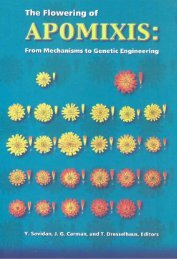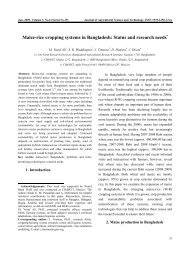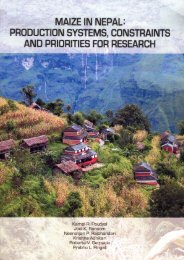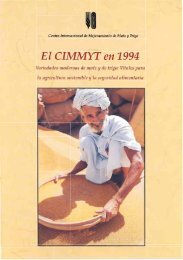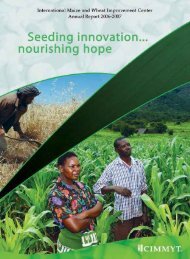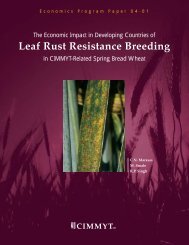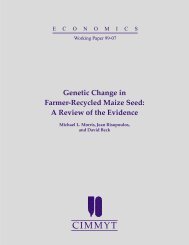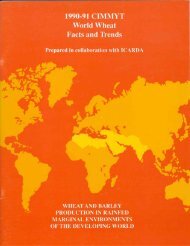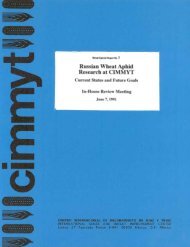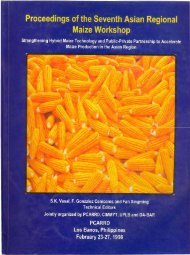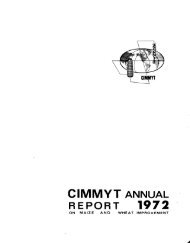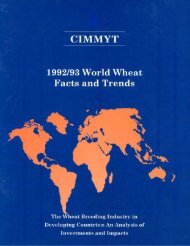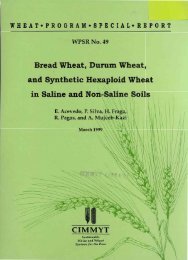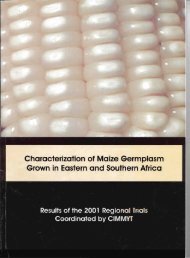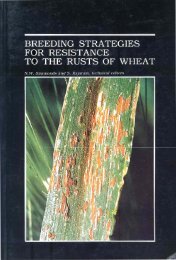REPORT - Search CIMMYT repository
REPORT - Search CIMMYT repository
REPORT - Search CIMMYT repository
Create successful ePaper yourself
Turn your PDF publications into a flip-book with our unique Google optimized e-Paper software.
and other governmental and semi-governmental<br />
agencies. It is probably that this organization<br />
alone could provide most of the annual seed<br />
wheat requirements for the State of Uttar Pradesh.<br />
In most of the other states, seed production<br />
is centered on State Farms or under<br />
University direction. The level of competence<br />
is varied. Some produce a good product, others<br />
fair to poor. Competence in seed production<br />
has grown very rapidly indeed and in the<br />
case of some organizations occupies a high<br />
place in the confidence of farmers.<br />
Extension<br />
Extension is largely a state concern, whether<br />
through the University or th State Department<br />
of Agriculture. Its effectiveness is a<br />
direct reflection of the degree of aggressiveness<br />
of those in charge. Some are very successful,<br />
others less so. A number of foreign agencies<br />
are also involved. The Ford Foundation through<br />
its cooperative program with the Government<br />
of India In the Inteslve Agricultural Dis1rict<br />
Program has demonstrated the value of supplying<br />
a package of Inputs on production levels.<br />
U.S. AID teams in different states are<br />
advancing the new technology. German, Japanese,<br />
Swedish and other National" 'teams are<br />
working in a more restricted area. AFPRO, an<br />
organization of charitable and church groups<br />
has been assisting agriculture in a general<br />
way. Some idea of the effect of extension on<br />
wheat production may be gleaned from such<br />
considerations as the very rapid spread of<br />
new varieties and technology In Punjab and<br />
Haryana, and the increase from 40,000 to<br />
240,000 hectares sown to wheat in West Bengal<br />
from 1964 to 1969. These areas are not alone<br />
in recording notable advances.<br />
Direct inoculation of rust spores suspended in oil was used for the first time in India in 1969·70 to t<br />
rust resistance in new wheats.<br />
t<br />
89



